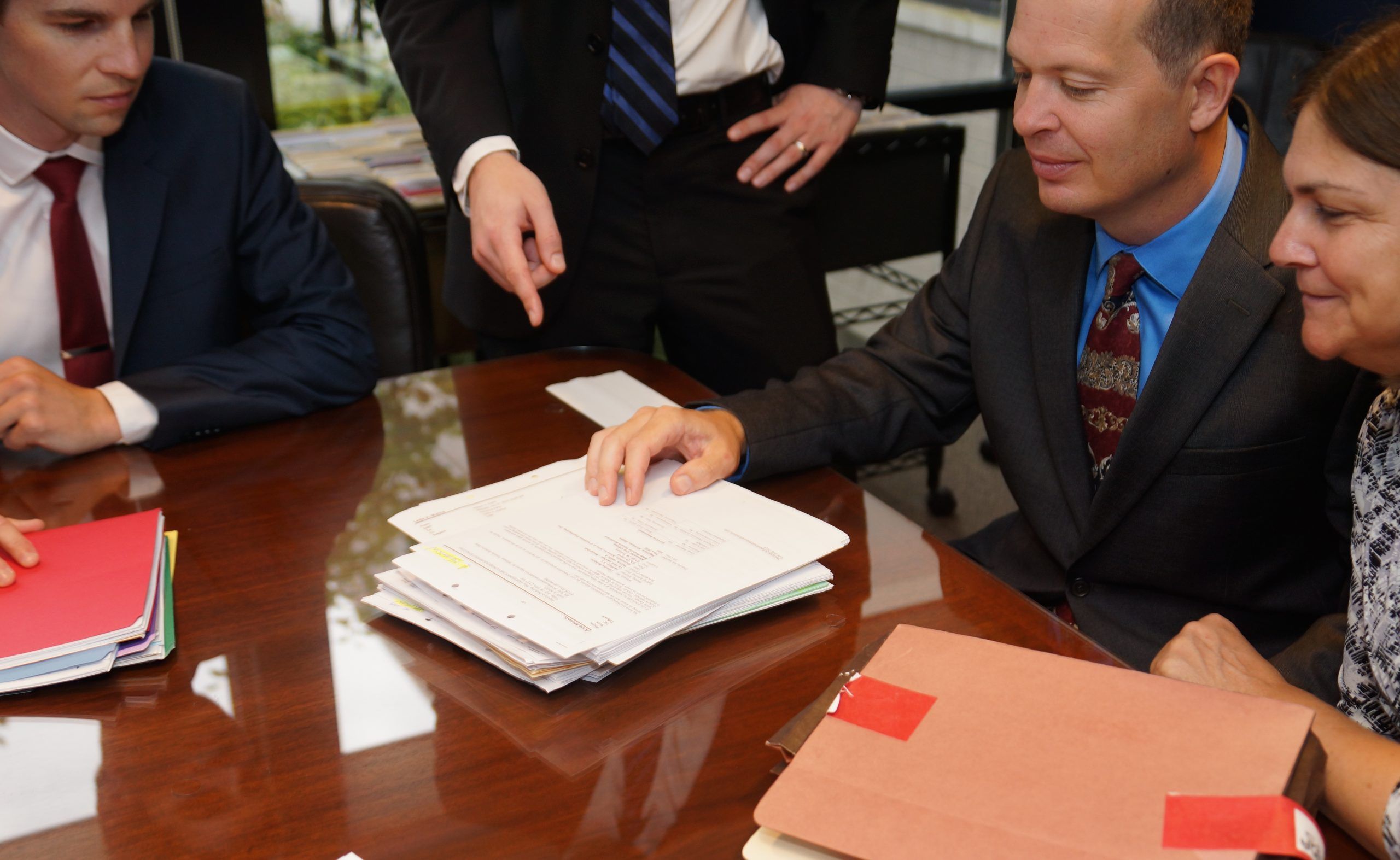“Cardelli Lanfear lawyers are not afraid to try a case. They worked with us every step of the way.”
Our Appeals are as Successful as our Court Trials
Our appellate team handles appeals in numerous different venues, including:
- Appeals from the Michigan circuit courts to the MI Court of Appeals
- Appeals to the Michigan Supreme Court from the MI Court of Appeals
- Appeals to the Sixth Circuit of Appeals from the US district courts
- Appeals from administrative agencies and district courts to the Michigan circuit courts
The subject matter of these appeals is too broad to be fully described, including matters such as commercial law, personal injury/negligence, product liability, family law, intellectual property, insurance coverage, and construction law.
We are proud to report that our appellate successes are as impressive as our record of success at the trial court level. If you have questions or concerns regarding appeals, contact us today. We have helped many clients in this matter.
Contact our Appellate Team
Tell Us A Little About Your Case
We’ll be in touch in 24 hours or less.
Why wait?
Call your Michigan Counsel:
(248) 554 – 1100
Frequently Asked Questions
Why is there an appeal?
There are three circumstances where there will be an appeal.
First, if you are successful at trial, your opponent may appeal. If so, your goal on appeal will be to persuade the appellate courts that the findings and rulings below were either correct or not sufficiently harmful to the adverse party to justify reversal.
Second, if you are unsuccessful at trial, you may very well want to appeal those findings and rulings that were erroneous. If successful, the appellate court may order a new trial or, in some cases, rule that you were entitled to certain relief not properly ordered below.
A third and lesser known appellate option is pursuing interlocutory appeal, that is, an appeal before a case is concluded. Interlocutory appeals are allowed in the Michigan legal system; the burden of the appealing party is to demonstrate both error and a particularized need for the court to intervene before the end of the case. This is most likely to be successful where the trial court fails to follow the law or so plainly misconstrues the law that the future trial is very likely to be set aside. Indeed, in many circumstances, it will benefit all parties to have the difficult legal issues resolved before trial.
Interlocutory review is far more limited in most jurisdictions, including the federal system.
How long does an appeal take in the Michigan Court of Appeals?
An appeal in the Michigan Court of Appeals is lengthy, often taking approximately 18 months to resolve. When requesting the Michigan Court of Appeals to grant interlocutory review, the timeline will be several months. If the Michigan Court of Appeals allows the interlocutory appeal, then the case will usually resolve within the aforementioned timeline.
What is the difference between Michigan Court of Appeals and appeals to the Michigan Supreme Court?
An appeal to the Michigan Court of Appeals after a trial is ordinarily an appeal as of right. The Michigan Court of Appeals is considered an error-correcting court. Every party is entitled to have this one level of review—so long as it faithfully follows the rules regarding timing and properly presenting the appeal.
In contrast, the Michigan Supreme Court is tasked with not just fixing legal errors, but also overseeing the entire body of law applicable to Michigan. While the Court of Appeals may resolve thousands of cases each year, the Michigan Supreme Court can only hear and resolve a fraction of that number. The Michigan Supreme Court must, therefore, decide which cases are most important for investing the time and effort to review. Even if the Michigan Supreme Court identifies a legal error below, it may not “take the appeal” because the issue is not one of significant importance to Michigan law. A party pursuing an appeal to the Michigan Supreme Court must be diligent in explaining to that court why it should deem the issues important enough to consider.
How do appeals relate to trial court proceedings?
During trial court proceedings, a litigant should have an eye on a future appeal. Because the appellate courts exist to correct an error below, a party that is appealing must show that an error occurred below. An appeal is not a second chance to try a case; rather, it is an opportunity to have a second court review issues that were properly presented to the first, inferior court. The benefit of having an appellate team within Cardelli Lanfear is that, working together, the trial lawyers and appellate team can work to have as many legal issues as possible are preserved for appeal. In addition, as noted above, the Michigan state courts have a comparatively welcome interlocutory appeal procedure. It is not uncommon for the appellate team of Cardelli Lanfear to be pursuing an interlocutory appeal while the trial court team continues to litigate at the trial court level. This is a huge benefit that most comparatively-sized law firms simply cannot provide.

Appellate Team
Our team approach sets us apart
Our appellate team is engaged well before any appeal. During trial, our motions are reviewed by our appellate team to confirm that our presentation at the trial court level will withstand appellate scrutiny.
Following a trial, our research and writing team works with our trial attorneys to ensure that our successful result is not disturbed. On the occasion where there is an adverse result to consider appealing, we first consult with our clients to make a sound decision regarding whether and what to appeal. We are proud to report that our appellate successes are as impressive as our record of success at the trial court level.


